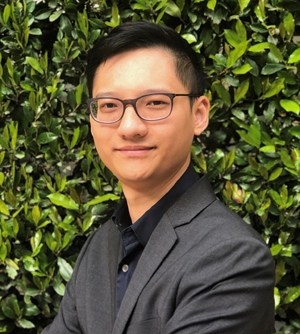Next-Generation Closed-Loop Brain-Machine Interfaces (BMIs) for Control of Brain States
Date: 2021/06/30 – 2021/06/30
Speaker: Prof. Yuxiao Yang, Department of Electrical and Computer Engineering, University of Central Florida
Time: 10:00 a.m.-11:00 June 30th, 2021 (Beijing Time)
Location: Online event using Feishu
Abstract
A brain-machine interface (BMI) is a direct control pathway between the brain and an external device. To date, BMIs have largely focused on restoring lost motor function in paralysis by decoding the brain’s movement intention and using it to control external prosthetic devices. However, beyond paralysis, many health care applications, such as the treatment of neuropsychiatric disorders, would require controlling the brain state itself using external stimuli such as electrical brain stimulation. In this talk, I will present the design of a new type of closed-loop BMI that controls the brain state by guiding the delivery of stimuli to the brain with the feedback of neural activity. I will focus on two clinical neuroscience applications: treatment of neuropsychiatric disorders and automatic anesthetic delivery. I will talk about the theoretical construction of closed-loop BMIs, the development of stochastic control and machine learning algorithms for closed-loop BMIs, their validation in in-vivo experiments, and how our results pave the way towards clinically feasible closed-loop BMIs for control of various brain states.
Biography
 Yuxiao Yang is currently an Assistant Professor in the Department of Electrical and Computer Engineering at the University of Central Florida (UCF). Before joining UCF in Fall 2020, he was a postdoc at the University of Southern California (USC). He received his Ph.D. degree from USC in 2019, his M.S. degree from USC in 2018, and his B.S. degree in 2013 from Tsinghua University, all majoring in electrical engineering. His work has been published in the most prestigious neural engineering journals, including one cover article in Nature Biomedical Engineering and one cover article in Nature Biotechnology. He was a winner of the Annual Brain-Computer Interface (BCI) Award (2019) and the IEEE EMBS Best Student Paper Award (2015).
Yuxiao Yang is currently an Assistant Professor in the Department of Electrical and Computer Engineering at the University of Central Florida (UCF). Before joining UCF in Fall 2020, he was a postdoc at the University of Southern California (USC). He received his Ph.D. degree from USC in 2019, his M.S. degree from USC in 2018, and his B.S. degree in 2013 from Tsinghua University, all majoring in electrical engineering. His work has been published in the most prestigious neural engineering journals, including one cover article in Nature Biomedical Engineering and one cover article in Nature Biotechnology. He was a winner of the Annual Brain-Computer Interface (BCI) Award (2019) and the IEEE EMBS Best Student Paper Award (2015).
